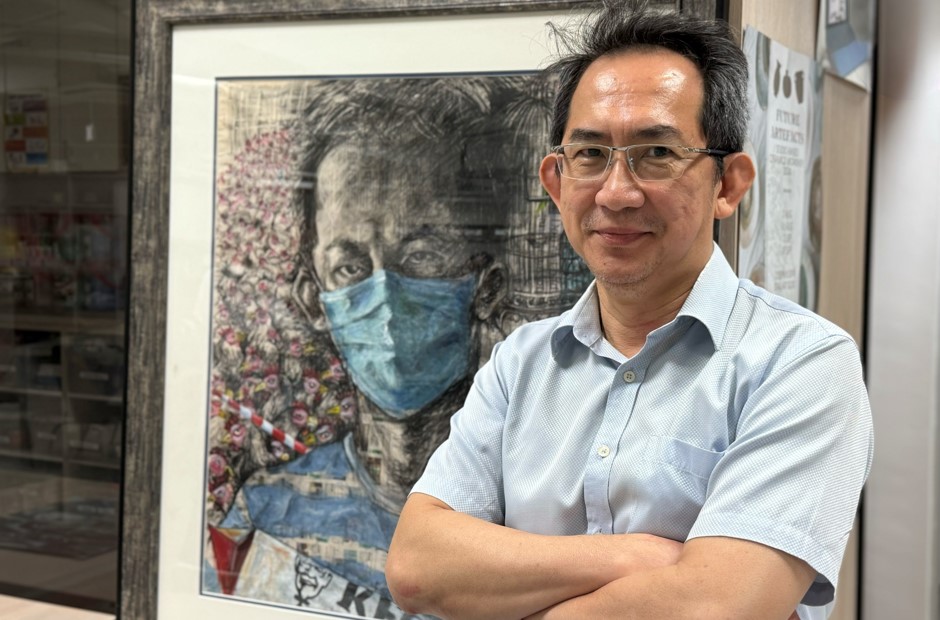Two weeks after getting her O-Level results in 2020, Shazwani Bte Mohammed Yusoff returned to school. She entered one of the Secondary 5 classrooms by the back door, and slipped into an empty seat in the last row. She hoped that no one would notice her.
“Shazwani, what are you doing here? Haven’t you graduated already?”
A junior she knew from CCA spotted her. Shazwani flushed as she tried to explain to her new classmate why she was here to redo Secondary 5, and her O-Levels again.
A slightly longer path
Since primary school, Shazwani had known what she wanted. She was inspired by her older cousins, who were studying medicine in university, and she wanted to be a doctor, or at least work in the health and biomedical field in the future.
Her parents had described the path she should take to get there in the shortest amount of time. Enter the Express stream, do well in the O-Levels and join a junior college (JC), then repeat the feat at the A-Levels to qualify to study medicine in university.
However, to Shazwani’s disappointment, she did not perform as well as she had expected in the PSLE, and was offered the Normal (Academic) course instead.
“I was heartbroken,” Shazwani recalled. “But my father explained to me that the N-Levels was just a slightly longer path and I could still go to university. That gave me hope.”
This hope kept Shazwani going throughout her first four years in Orchid Park Secondary School. She consistently did well in her studies and qualified for the Direct Entry to Polytechnic Programme (DPP) after her N-Levels. Under this programme, eligible students would be guaranteed a place in polytechnic after passing their Higher NITEC course in ITE. However, she chose not to take it up as there were no health-related courses under the DPP.
“I knew that Secondary 5 and the O-Levels would not be easy, but I believed that would be the best route to my goal.”
Shazwani never expected that it would take her much longer than a year to progress to JC.
Distractions, and disappointment
In Secondary 5, Shazwani found it increasingly difficult to stay focused. Perhaps it was the relief of having just finished a major exam – surely, she deserved a bit of a break?
After school, she would visit the convenience stall nearby to get snacks and chat with some friends. It became a habit for her to stay out late and she would then rush through her homework in the night. This made it hard for her to stay awake in class the following day.
Although Shazwani knew that this was not helpful for her studies, she found it hard to get back into her old routines. She also tried to dismiss her parents’ concerns.
“I kept telling them that I’m doing fine,” Shazwani recalled. “I think that’s what I myself wanted to believe too!”
When the O-Levels drew near, Shazwani belatedly tried to ramp up on her revision, but her last-ditch efforts were disorganised and half-hearted.
“I would joke with my friends that if all else fails we can just retake [the exam],” she laughed. “It sounded easy, but we didn’t know how hard it would really be.”
The O-Level results were released in mid-January. Shazwani had failed in 2 subjects, and did not qualify for JC at all. In fact, she barely met the cut-off point to enter polytechnic – and her score was far below what was required for the health sciences-related courses.
Now the question was: Should she give up on her dream and take up another course in polytechnic, or consider the option she had joked about earlier – retaking her O-Levels?
“The oldest student in school”
After receiving her results, Shazwani locked herself in her room and cried. It was evening before she gathered the courage to speak to her parents about her options.
“I think the main question was whether I would actually do better the second time, or would I be wasting another year. If I don’t change my attitude, repeating would be useless.”
Shazwani was thankful that her parents were supportive. They knew it was a risk but were willing to let her give it another shot. Their belief in her was a huge comfort and gave her the resolve she needed in the weeks ahead. Because she met the criteria to enter polytechnic (just barely), Shazwani was initially not allowed to retake her O-Levels in the school. She had to convince her Vice-Principal to make an exception for her to do so and go through many difficult conversations about what went wrong and how she planned to improve.
Two weeks later, Shazwani re-entered the school as a repeat student.
“The first day was very emotional for me,” she shared. “Everyone – my teachers, my new classmates asked why I was back and I had to explain myself many times. I know they were just being concerned, but I was still embarrassed!”
It was definitely awkward and Shazwani found herself shedding more than a few tears at the start. However, Shazwani soon found that her new classmates did not look down on her at all. They invited her to join them for recess, and helped her to settle in. Her teachers were also understanding, and constantly encouraged her to do better.
“I could feel that they expected more from me because I chose to come back. I wanted to live up to their expectations, and this spurred me on.”
Shazwani was also motivated by friendly competition with her new classmates. They would challenge each other to see who would get the better score in the next test, and this mock rivalry and banter kept her going.
On her part, Shazwani was determined to make her second attempt count. Since day one, she cut herself off all social media and set aside time for her daily revision. She also took more initiative to ask questions and looked through her teachers’ feedback for her assignments so as to avoid making the same mistakes.
With all the effort, Shazwani made a marked improvement in her school examinations. Her Vice-Principal even came to congratulate her personally after her prelims.
“She told me that coming back was worthwhile,” Shazwani shared. “I felt touched that she was paying attention to how I was doing.”
Older and wiser
By the time her second O-Levels came around, Shazwani was calm. In fact, there was none of the last-minute desperate cramming. She was confident that her consistent effort would make the difference.
Still, Shazwani was stunned to see her name on the list of top Secondary 5 students when the results were released this year. She had halved her score compared to her previous attempt, and got at least a B for all her subjects. At long last, she was one step closer to fulfilling her childhood ambition.
Shazwani’s joy was shared by her parents, who could not be more proud of her resilience and courage in the past year.
“Whenever my relatives asked about my studies, my parents would stand up for me and tell them that I’m doing my best. I’m so glad that they now have some good news to share.”
Shazwani has just started her new term in junior college.
“Part of me can’t believe it’s real. After six years in secondary school, I’m finally in a new place and ready for new adventures!”
She knows the path ahead is not going to be easy, but she believes that she is prepared for any challenge that will come her way in JC.
After all, when it comes to school, she has the most experience out of all her classmates.
Making the most of your second chance
To those who find themselves in a similar situation, Shazwani has these tips to share:
- Don’t care about what people think: “It’s natural to feel embarrassed when you fail, but you can survive it. If you decide that something is worth doing, set aside your fear of what others say about you. Let them judge you by current efforts, and not your past mistakes.”
- Deal with your distractions: “Deleting your social media accounts really help. But if you can’t do that, at least put your handphone far away from you, or hand it to your parents while you are studying. You’ll be surprised at how much more focused you’d be!”
- It’s ok to take a detour: “In life, people take many different paths to their goals, and it is often not as straightforward as you expect. My father was doing his university degree in his 40s, and I took the O-Levels twice. This is more common than you think, and it’s perfectly alright to keep learning so long as we don’t give up.”






